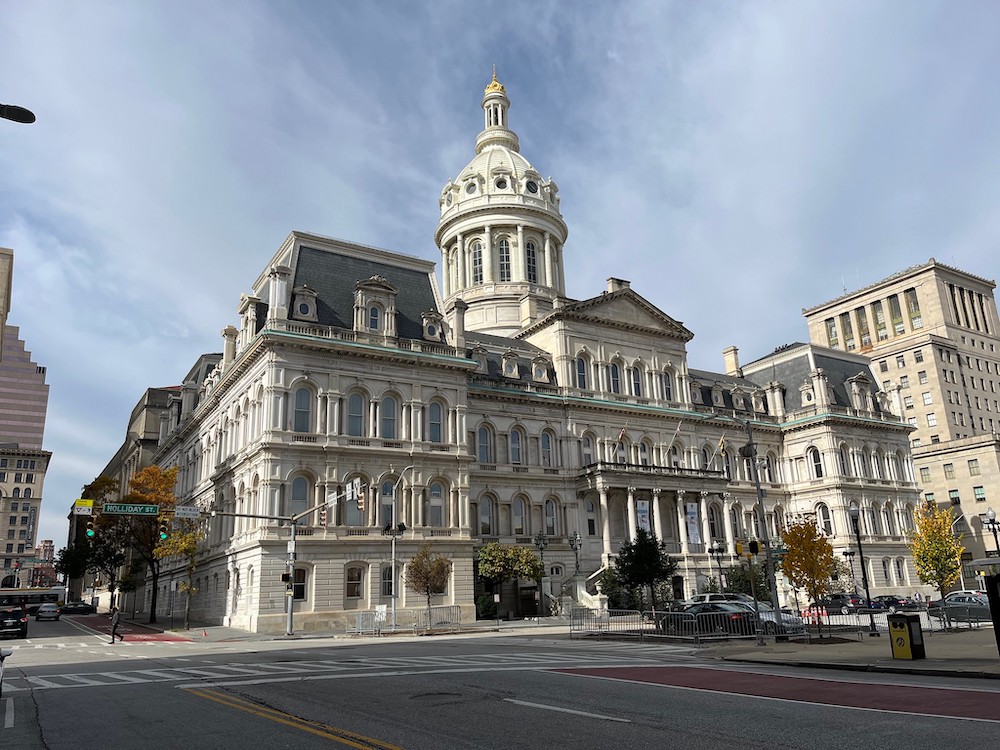Before his passing in 2020, Congressman John Lewis declared that access to the internet was the civil rights issue of the 21st century. Mayor Brandon Scott echoed this message when announcing another financial initiative designed to address the digital divide in Baltimore.
In line with ongoing initiatives like Bmore Connected aimed at providing better internet access to the city’s underserved residents, on Friday, Mayor Scott and the Baltimore City Office of Information and Technology’s (BCIT) Office of Broadband and Digital Equity unveiled an investment of about $1 million into Baltimore-based organizations working on this issue. This marks the first distribution of money from the city’s Digital Equity Fund, which was launched in April with funds from the American Rescue Plan Act and is managed by the Baltimore Civic Fund.
The Digital Equity Fund is designed to allocate resources across three distinct categories: education and outreach, planning and implementation grants. The overarching goal of these grants is to effectively narrow the digital divide, according to a press release from the Mayor’s Office.
“With digital access becoming increasingly integrated into every aspect of life, digital equity is a civil rights issue,” Mayor Scott said in the aforementioned press release. This isn’t a new school of thought for Mayor Scott, who, when elected in 2020, planned to support city government initiatives to expand access to technology. He hired a digital equity director, Jason Hardebeck, shortly thereafter in 2021; Hardebeck was ousted last year amid a restructuring that moved the Office of Broadband and Digital Equity under BCIT.
Shamiah Kerney, chief recovery officer in the Mayor’s Office of Recovery Programs, also emphasized the critical nature of access by drawing a parallel between connectivity and other city initiatives in the press release.
“Just as we invest in roads and bridges to connect our communities, we must invest in digital infrastructure to connect our citizens,” Kerney said in the written statement. “Access to the digital ecosystem isn’t merely a matter of convenience; it’s a matter of equity, economic opportunity, and social inclusion.”
The absence of reliable broadband access in various neighborhoods across Baltimore remains a persistent challenge, significantly impacting the daily lives of countless residents. Digital Equity Fund implementation grantees like Open Works have been working on the challenge of bridging the digital divide, including projects such as its solar-powered router kits.
Open Works Executive Director Will Holman broke down several ways in which the city’s grant of $72,552 would help with the implementation of these devices
“Last year, we received funding through the Central Baltimore Partnership to prototype and install six solar-powered WiFi and device-charging stations at community and recreation centers along the Greenmount corridor,” Holman told Technical.ly. “The first permanent installation was completed at the 29th Street Community Center in Harwood in July. This BCIT grant will enable us to create an additional six stations for placement at other community sites, including Mt. Sinai Baptist and Stillmeadow Community Fellowship [churches]. It also supports the prototyping of a mobile unit that could be deployed to provide temporary WiFi at festivals or during emergencies.”
According to the previously mentioned press release, the selection of Digital Equity Fund grant recipients hinged on their inventive and flexible approaches to addressing digital equity disparities that impact some of Baltimore City’s most vulnerable communities. This encompasses older individuals, those with disabilities, individuals confronting housing insecurity or homelessness, those with limited English proficiency and residents of low-income households.
“Internet access will empower the community to discover employment opportunities, access essential health and mental health resources, and explore areas of interest such as history, art, music and literature,” said Ashley Flowers, cofounder of grantee Little Flowers Early Childhood and Development Center in West Baltimore, which received $5,000. “Little Flowers anticipates involving our senior community in collaborative efforts with the youth to provide them with hands-on experience in digital access through computers and phones. Given that 85% of our community falls into the low-income bracket, they may not consistently have access to digital resources when needed.”
City government representatives and several of the other grantees did not immediately return a request for comment on Monday.
See the breakdown of grantees and how much they received, per the city’s press release, which tallied to $915,998 in total grants:
Outreach Grant Recipients:
Asylee Women Enterprise – $10,000
CASH Campaign of Maryland, Inc. – $10,000
Center for Technology Access and Training – $10,000
Code in the Schools, Inc. – $10,000
Enterprise Community Development, Inc. – $10,000
Latino Economic Development Center – $10,000
Leadenhall Baptist Church – $10,000
Little Flowers Early Childhood and Development Center, Inc. – $5,000
MedStar Union Memorial Hospital – $10,000
Next One Up – $10,000
PCs for People – $10,000
TechUp Baltimore – $9,940
Village Learning Place – $9,500
Wide Angle Youth Media – $9,875
Planning Grant Recipients:
Associated Black Charities – $50,000
Center for Technology Access and Training – $50,000
Historic East Baltimore Community Action Coalition, Inc. – $49,392
PCs for People – $50,000
Implementation Grant Recipients:
Byte Back – $74,739
Center for Technology Access and Training – $75,000
City of Refuge Baltimore – $75,000
Code in the Schools, Inc. – $75,000
Govans Ecumenical Development Corporation – $60,000
No Boundaries Coalition, Inc. – $75,000
Open Works, Inc. – $72,552
Rebuild Johnston Square Neighborhood Organization – $75,000







